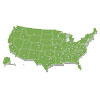The Truth about Raspberry Ketones, Green Coffee Bean Extract, and Garcinia Cambogia
A couple decades ago, when I lived in Los Angeles, I met a guy who may have been Hollywood's original personal trainer. At minimum he was one of the few guys the studios could call on in the '40s and '50s when they needed help getting a star into shape.
The problem, he told me, is that stars were on contract to studios, and part of their deal was to act like stars: go to parties and nightclubs, be seen with their fellow celebrities, eat and drink and smoke and look glamorous while doing it. He rarely had more than a few weeks to undo the damage before the cameras rolled and the actor had to look lean, fit, and healthy.
How did he pull off this miracle? Amphetamines.
Sure, he trained the actors, cleaned up their diets, and in some cases kept them off booze. But powerful stimulants, which simultaneously increase your metabolic rate and decrease your appetite, were the only surefire way to take weight off fast.
Today we know that if a drug is strong enough to help you lose weight, it's incredibly risky to use. That's why most of them are either illegal (like cocaine and meth) or available only with a prescription (like Ritalin and other ADHD medications). Caffeine is the closest you'll find to a legal, effective weight-loss drug, but only if you use it to train longer and harder. Even then the best results will probably come with higher doses, which includes some risk for susceptible individuals.
That brings us to Mehmet Oz, M.D., host of The Dr. Oz Show. On June 17 Oz was called before a Senate subcommittee. The topic: misleading ads for weight-loss products. Senator Claire McCaskill focused on three he enthusiastically endorsed on his show: green coffee bean extract, garcinia cambogia, and raspberry ketones. If you've heard of them at all, it's probably because of him.
Do any of them work? Probably not. But to figure out why anyone would think they do, we turned to examine.com—an independent organization that provides un-biased research on supplements and nutrition—for a deeper look.
Raspberry Ketones
What Dr. Oz called it: "the number-one miracle in a bottle to burn your fat."
What it is: a chemical derived from raspberries used for scent and flavor in both cosmetics and food.
What it does: The chemical structure is similar to that of synephrine and capsaicin, both of which have been shown to speed up human metabolism and thus burn more fat.
Does it work? In rodents, yes, but only in extremely high doses. And even those results weren't impressive. They simply showed that overfed rats given raspberry ketones gained less weight than overfed rats without the supplement. Not only is there no research showing a benefit to humans, it's hard to imagine there ever will be.
Green Coffee Bean Extract
What Dr. Oz called it: "the magic weight loss cure for every body type."
What it is: a product made from unroasted coffee beans.
What it does: Green coffee beans are rich in chlorogenic acid, which may restrict absorption of carbs in your meals.
Does it work? Probably not. The handful of studies supporting its use were financed by supplement makers and are considered low-quality studies.
Garcinia Cambogia
What Dr. Oz called it: "the simple solution you've been looking for to bust your body fat for good."
What it is: a citrus fruit called Malabar tamarind, which is found in Indonesia.
What it does: In rodent studies, it appears to decrease appetite while also inhibiting "lipogenesis." An overly simplistic explanation of lipogenesis is that it's the process that converts carbohydrates into fat, which can then be stored in, say, your belly area.
Does it work? In rats, yes. But lipogenesis is less likely in humans.
When we eat a combination of fat and carbs—which most of us do, most of the time—our bodies preferentially use the carbs for energy and store any fat we don't need for fuel. That's why overeating anything can make us fat, and why a supplement that prevents lipogenesis in rats is unlikely to save us from ourselves.
Which brings me back to the grizzled trainer on Los Angeles. Decades before the Internet existed, he understood that there was no safe and reliable way to lose weight quickly. So he chose "reliable" over "safe." I assume his clients survived their amphetamine therapy. But if any of them didn't, he kept that information to himself.
Today we know exponentially more about diet and exercise. We have a small list of effective supplements backed by solid research—namely, protein, creatine, fish oil, and vitamin D. What we don't have, and may never have, is a magic pill.
Unless you consider a good diet and consistent training program to be a form of magic. It's not, but it's as close as we're going to get.
Lou Schuler, C.S.C.S., is an award-winning journalist and the coauthor (with Alwyn Cosgrove) of The New Rules of Lifting Supercharged.
-
Transform: Muscle-Building Weight Loss Plan
Welcome to Transform.
-
Is Obesity the Government’s Business?
Sorry, Uncle Sam, but you’ve been benched in the fight against obesity
-
Body Mass Index Facts
The next time you happen to catch a Minnesota Vikings game, take a loo
-
Try This 15-Second Weight Loss Trick
Confess your sins: Writing down what you eat could help you lose your
-
Abs Diet: Muscle Building Tips
1. Eat meat. Shoot for about 1 gram of protein per pound of body weigh
-
Food Cravings and Carb Cutting
More of us would become citizens of Low-Carb Nation if it werent for t
- DON'T MISS
- Are You Accidentally on Drugs?
- Expert Weight Loss Tips
- The 5 Worst Excuses for Getting Fat
- What is the DASH Diet?
- Are Egg Whites Better than Whole Eggs?
- Weight Loss: Energy Drinks Vs. Soda
- Transformation: Body Fat Exercise Plan
- Abs Diet for Women Success Story
- Egg Yolks MORE Dangerous than Smoking?
- Abs Diet: Total Body Exercise




